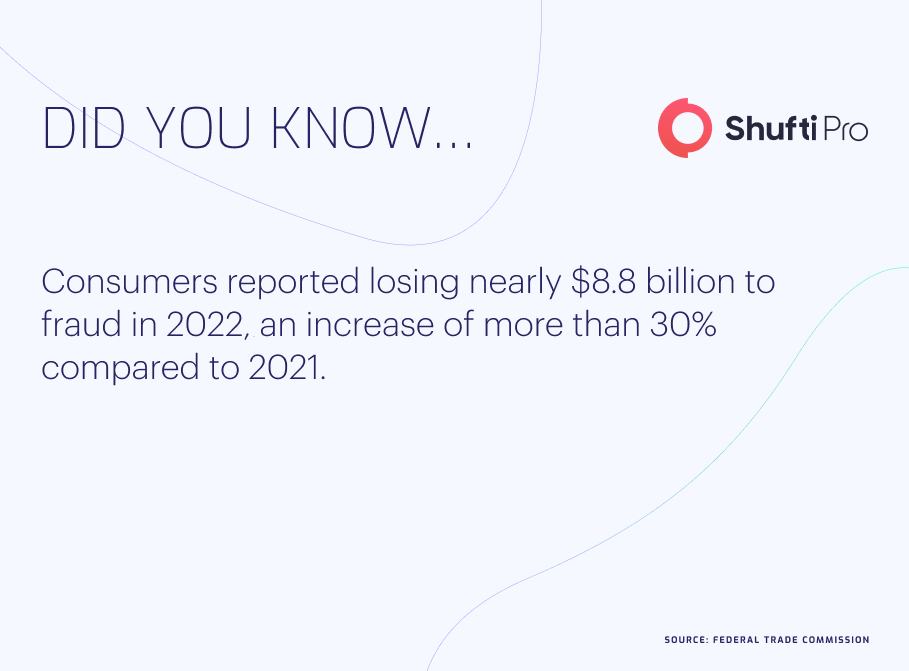The Top 6 Holiday Season Scams to Avoid in 2023

As we move further into digitisation, our methods of giving gifts have changed drastically. In today’s digital world, with people having little to no time to celebrate the festivities, many people move towards sending digital gifts to strengthen bonds with friends and family. One in three American adults, or around 34%, admits to taking more risks when shopping online during the holiday season as compared to other times of the year. This is mainly because of Christmas scams. People usually purchase gifts, including online gift cards and other valuable virtual possessions.
Christmas phishing scams are a prevalent problem that the world is facing today. Scammers and cybercriminals are now more sophisticated than ever and keep developing new methods and techniques for fraud. This year, holiday spending is projected to soar to around $66.8 billion in the November to December 24 Christmas trading period. According to the Australian Retailers Association, this figure is broadly in line with last year (up slightly by 0.1%, or $74,000), despite the cost-of-living crisis and many people feeling the financial strain. Here are some of the newest fraud techniques these scammers have been utilising to commit fraud during the holidays, such as Christmas.
Holiday Scams: New Techniques to Watch Out For
Christmas e-card scams and website lookalikes that imitate authentic brands are significant players in scamming people in the name of Christmas gifts. Some scammers also tend to generate fake gifts for users. Typically, a user is approached by these scammers with a message saying that they want to send them a Christmas gift. During the customer journey here, the user’s essential details are compromised.

Phishing Scams
These are the oldest yet most efficient techniques of fraud. In these methods, criminals usually generate fake messages and pose as legitimate entities. This can include banks, financial service providers, or any famous brand. A fake email or message containing urgent messages is generated using these identities. These messages can consist of actions such as suspending the account, an account being compromised, an unclaimed reward, or an expensive item being offered at a lower price. Users usually fall victim to these scams and give away their details, which the scammers then utilise to conduct fraudulent activities.
To avoid such scams, users should ensure that the link they follow is from a trusted source and that the entity that has sent the email is legit. Users also need to ensure that the entity meets all KYC compliance requirements. For this purpose, users can adopt a kyc verification solution that verifies the identities of the entities that send them such messages.
Gift Card Scams
Another major type of holiday scam is the Christmas e-card scams. In this instance, hackers and cybercriminals generate fake cards that are sold to users as scams. These gift cards are listed at relatively low prices around the Christmas season. A user looking to save on gifts might fall victim to these virtual Christmas card scams. To contact users with these cards, scammers utilise different methods, such as emails, social media ads, or direct approaches. Once a user purchases these cards, they discover that the card is either useless or has a lower value than the promised value.
The best way to avoid gift card scams is to utilise KYC fraud detection before purchasing. KYC solutions verify the identities and backgrounds of entities on the internet and help users stay safe against fraudulent activities.
Charity Fraud
At Christmas, many people are looking to distribute their wealth among the needy or help them in any way possible. Because most people are busy nowadays and have little time on their hands, these people tend to move towards donating their money to different charity services and NGOs that use that money to help the needy. Donating money to organizations is better than distributing aid among people individually.
The problem here is that sometimes, the charities and NGOs collecting donations can be fake. They can take the money of these people and then leave with it. This means that all the money donated goes directly to criminals instead of those who need it. Digital KYC can identify these fake charitable organisations. Users can thoroughly verify their identity before donating money to an organisation and ensure their previous records are positive. In this way, users can avoid donating money to scam organisations.
Social Media Scams
Christmas fraud has significant operations on social media platforms. Hackers and cybercriminals use various platforms to display fake ads that lure users. These ads primarily include items and discounted prices or deals that urge the user to spend money on them because they are designed to be so cheap that an average user thinks they would save a lot of money this way and ends up purchasing those fake products.
Social media scams can be simply avoided by not trusting any suspicious ads. Items with unbelievable discounts must be avoided because these are primarily scams unless they originate from a trusted source. The source of origin of these ads can be traced using KYC fraud tracing. By accurately verifying the details of the entity posting those ads, KYC can inform users about its legitimacy so they don’t fall victim to these scams.
Travel Scams
During the Christmas holidays, many people prefer to travel to different parts of the world with their loved ones. Traveling is expensive; during the holiday season, these prices increase further due to increased demand. Hackers and cybercriminals utilise this to scam people looking to travel the world but looking for relatively cheaper travel methods. These hackers and cybercriminals create fake ads and packages that are cheaper than the official prices. Some scammers approach the users privately and urge them to buy their travel packages, which, according to them, are cheaper. Users usually fall victim to these scams and initiate impulsive transactions on those travel packages. They were informed that their seats were not purchased when they reached the airport.
To avoid these scams, users must verify the travel company before purchasing a travel package from them. This includes utilising a complaint service that ensures the company is registered with the government, has a legal presence, and is not a shell company made for scamming purposes.
Giveaway Scams
In the holiday season, many scammers tend to initiate fake giveaways. It is primarily kids and underage individuals that are targeted by these criminals because there is a higher chance that the kids fall victim to these scams. The message of the giveaways is perpetrated on the potential victims through third-party advertising. Once users sign up for these giveaways, they are sent a fake message saying they have won the giveaway. However, to claim the prize, these scammers require users to provide their personal information. This is the main reason these scammers target underage individuals; they are more likely to give the information of an adult.
To avoid these KYC scams, underage kids must be protected against exposure to such content. A robust identity verification service is crucial here, as it can help prevent future complications.
Preventing Holiday Scams: Leveraging IDV
The use of robust KYC fraud detection services can help prevent these holiday scams. There are several regulatory bodies where users can report these scams and help reduce them. These regulatory bodies include:
- The Federal Trade Commission (FTC)
- The Internet Crime Complaint Center (IC3)
- Local police departments
Shufti is a verification service provider that allows users to avoid scams during the holiday season. With real-time KYC verification solutions, we help users ensure that the entities they buy their gift cards, packages, or other gifts are legitimate. Technologies like deepfake recognition, OCR Technology, and document verification help our KYC verification solutions ensure that an entity is legit.
Don’t fall victim to these scammers and fraudsters this holiday season. Get in touch with us and adopt Shufti today!

 Explore Now
Explore Now













